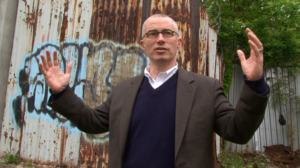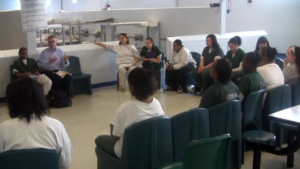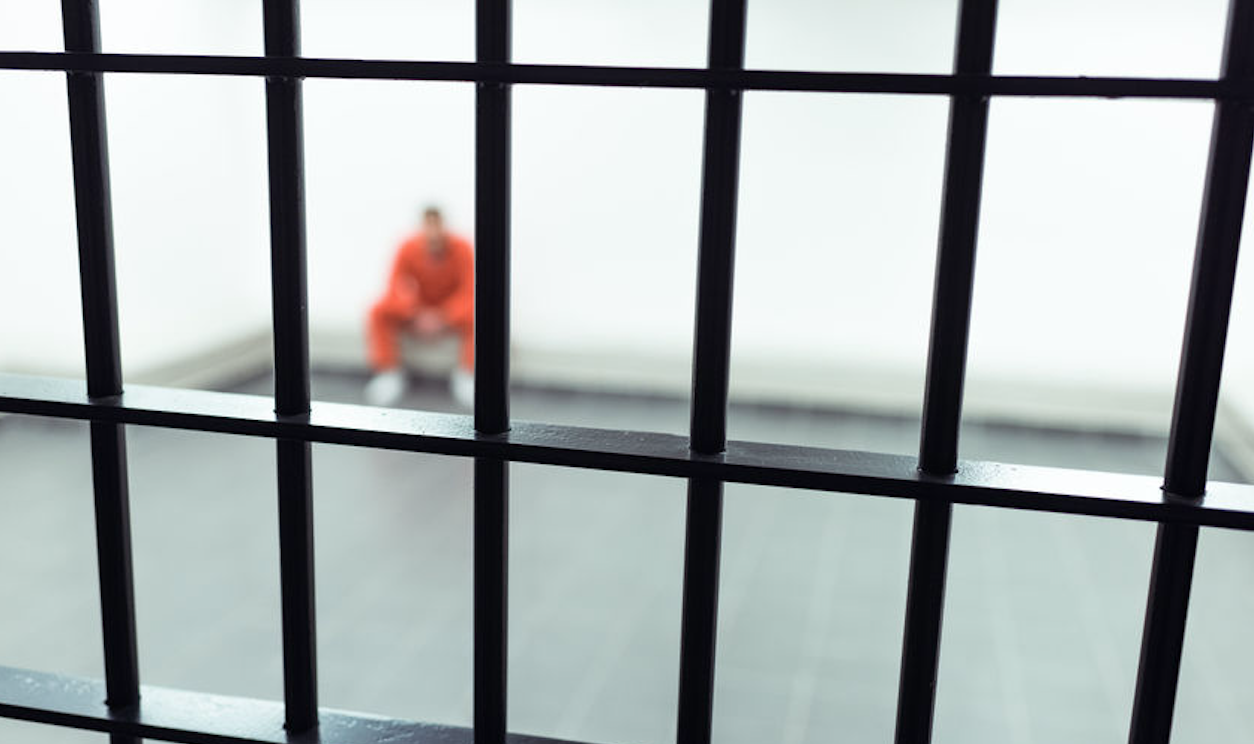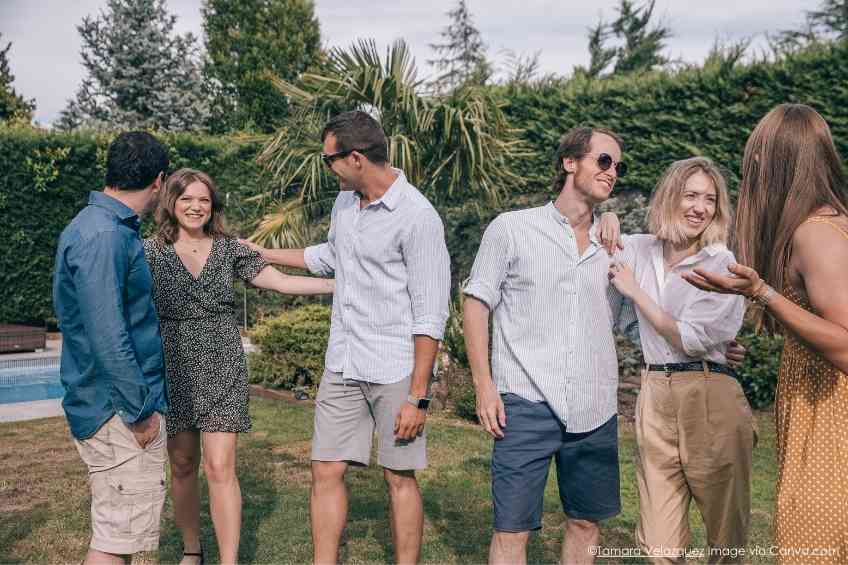In WellWell’s second of a two-part interview with former New Jersey governor Jim McGreevey, now chairman of the board of The New Jersey Reentry Corporation, we explore his work and views on how best to break the cycle of former inmates returning to prison. McGreevey lays out his views on what drives this painful cycle, the personal and financial costs to the individual, and the ways in which their community and state often either ignore or not fully address the systematic flaws that contribute to this problem.
This is the second of WellWell’s two-part interview with Jim McGreevey.
You’ve mentioned how drug addiction plays a critical role in the cycle that drives people into prison. We’re currently in an opioid crisis that is devastating both urban and rural areas across the country. What is the solution?
I’m a great believer in harm reduction. I think harm reduction is prudent, it’s smart and frankly it has taken me a long time to get to that place because I was an assistant prosecutor. I also grew up in a family with police and law enforcement members, but I understand now for certain people at the end of the long day, just surviving is an accomplishment.
The capacity to have a clean needle can and will save a life. It can save someone from HIV or Hepatitis C and that in it of itself is a good thing. In our program we embrace suboxone, we have scores of clients that are taking 8 milligrams of suboxone daily and many will be taking it for 1 year, 2 years, 3 years, I suspect some will even take it for a lifetime. But it enables them to function and not use heroin thereby avoiding fentanyl overdose. So, I think harm reduction is a worthy goal and something that we support diligently with the governor’s office and with legislators.
But for us, the primary advocacy is with medication-assisted treatment with suboxone or vivitrol, whether that’s behind the walls of state prisons and county jails or outside of the wall and particularly for our clients. Former inmates are 129 times more likely to die from an overdose within the first 2 weeks of being released because while they’re in prisons, their cravings soar unimaginably high and the resistance wanes over the course of their imprisonment. Even if they’re using behind the wall, the heroin is cut so heavily that the toxicity or the strength of the heroin is substantially decreased. If someone goes out and uses at the same level they did before they went in and now with the advent of fentanyl, there’s a high probability of overdose and God forbid, death. That’s the reality.
That may work in terms of treatment, but how do we attack the societal onslaught of addiction in general?
If you look at the nationwide stats on opioid use and suicide, you see a significant increase of deaths. In fact, I believe for the third year in a row the US longevity rate has actually dropped because of the deaths of these young people. I think a lot of this is tied to the sense of purposelessness and the sense of confusion, whether it’s the shifting nature of the economy, educational opportunity, the decline of traditional religion, values or loss of community.
My sense is so many of these young men of any particular ethnic or racial background have so few binding ties to the community. I went to Boy Scouts, I participated in Little League or went to soccer league, I went to the local library, I went to church socials on the weekends—that’s where ties to the community that bound me to my neighbors, buildings, and traditions were formed. Today, there’s so much less of that. Young men, their dating life consists of dating apps, Tinder and Ginder, but there’s so much less time for people to be in meaningful relationships that include caring, compassion and guidance. I sound terribly old fashioned, but for men and women there is a decline of familial influences. It’s seen in how much time they have with their families, with their loved ones. Is the addiction crisis going to miraculously end? Of course not. I think we may even move from this opioid and fentanyl crisis to another one. I just hope and pray that it doesn’t have the incidence of death that opioids have had.

(photo source: Fall To Grace, HBO)
So why do you think it’s so easy for young men now to be able to cut themselves off from not only the world but their families?
I’m not a psychologist, but what I see is that while traditional relationships that bind people to community have decreased, access to technology has increased by an even greater percentage. This means individuals are tied to far more fragile relationships. In many cases they may even be in more relationships but they’re less substantive, cerebral, and meaningful. They can lead to less awareness as to what constitutes a right and wrong action.
I work every day with people that have committed murder. Murderers actually have the lowest recidivism rate in the country. But my responsibility is not to judge how somebody has gotten to where they are but to help them through a sense of awareness, responsible living and supportive state services to get them to a perspective where they can live in a healthy and productive manner in the community.
Murderers having the lowest level of recidivism. That’s fascinating. Why is that?
Yeah. Because you commit murder and you’re in prison for 30 years or for 17 years or for 40 years, you’re not about to say: “Oh, that worked out well” and commit another murder. It’s ironic what we call the “gang bangers”, the young guys who have joined a gang, sell drugs, run around with the bling and the car, they’re the guys that we call the frequent flyers. They’re coming in and they’re going out, not someone who committed a murder and served a long term.
I respect and honor that older guys with wisdom, maturity and life experience, particularly when they talk to young people and they say to them, “This is going to end badly. When these older guys give these young people, the one’s in the gangs, that level of wisdom its immensely impactful. I’m so grateful because white working-class Jim McGreevey only has so much credibility.
Prison doesn’t work because if you’re in prison, whether you’re the warden or you’re a gang leader, you’re not necessarily embodying virtuous behavior. You’re trying to have an acquiescent supplicant population that will do whatever it is you bloody want them to do in order to get through the day and accomplish your benchmarks. But you’re not encouraging people to make thoughtful decisions as to right or wrong or the next right step.
This ties back to the young men. They leave prison and when they reenter society, the only community that will have them is often gangs. But if that longing for community is the reason why they wound up prison to begin with, how do we break that cycle?
It’s people, places and things. But at the end of the day, I always tell the men and women that it’s an individual’s decision to do something different. We also encourage them because so many of them go back to the community. It’s what they know so we’re concerned as they say in AA and NA, with people, places and things. So if you get back with the same people, if you’re up earning the same places, if you want the same things, there’s a high probability that you’re going to relapse and find yourself in the same position, vis-à-vis your addiction and your behaviors and the chaos and the criminality.
Reentry is important not only in terms of providing birth certificates and drivers licenses, but also addressing outstanding warrants with legal benefits, job trainings, or constituting a new community. It’s all so important.
In prison, for large swaths of time there’s nothing to do but to tell stories. You’re not building a computer empire, you’re not selling a widget, you’re not building a business, you’re just telling storie. You may arguably be wasting large chunks of your time, but stories become who and what we are. For people in prison, those stories can become damning and limiting if there isn’t a sufficient level of self-awareness and reflection.

(photo source: Fall To Grace, HBO)
The documentary Fall To Grace depicts how when you first got into this, you were primarily focused on the women in prison. What are some of the unique challenges that female inmates face, both in prison and reentering society?
I loved working with the women. The women are much more willing to love, be gentle, be compassionate, to be kind. Men are much more tribal. For men, identity is tribal and its based on geography, ethnicity, and race. Women have a different approach. I remember working with a young girl in prison who was in the midst of an opioid detox. And this older woman was holding her as she went through withdrawal. Physically holding her and stroking her hair. That would never happen in men’s prison because of everything from homophobia to the tribal instincts, but she knew this young woman was in pain and she just instinctively nurtured her. She didn’t give a damn what anybody thought. I don’t know if this makes sense. Maybe it’s reverse sexism. I just think there’s a higher sense of morality, a higher sense of humanity. Might be innate, might be learned. But it’s what I saw.
What are the unique challenges? I mean, the prison system isn’t designed for women, it’s designed for men. Women typically have fewer opportunities whether it’s education, exercise or even far worse, healthcare. The insufficiency of healthcare for women in prison is a disaster. There are women I know personally that went in for surgery for fibrotic tumors and walked out with a complete and total hysterectomy. Anywhere else and that hospital would be sued.
Do you think traditional gender roles impact how women tend to be more willing to show empathy, because society’s raised them to?
I think gender roles are far more fluid today. Well, let’s put it this way. Maybe they were always fluid but maybe there’s a greater sense of awareness. So, I want to be reflective or cautious as to what I don’t know. But my sense is that, in part, because there are fewer woman and definitely a greater sense of community along with many women having a more acute paternal sense of development and recognition, there is a greater level of compassion.
This has been a wide-ranging discussion. Is there anything that you would like to add?
Yeah, just a few things. Firstly, prisons are a reflection of America, a reflection of New Jersey in our case. What concerns me is that New Jersey has the highest racial disparity in the country, which is obviously of grave concern that we have woefully disproportionate and increasing numbers of African American and Latino prisoners behind the wall. Whether it’s due to patterns of prosecution, economic means, access to education, access to treatment, behavioral healthcare, or mental healthcare support, the reality is that prisons have largely become a depository of where we place those societal problems we don’t want to deal with. Except those problems have tangible effects on people of our community, our state, our country.
I would add the cost for New Jersey Reentry is $20 to $100 per individual a year as opposed to $55,000 a year for locking them up. But we as a society are very good at locking people up for extended periods like 20 years at a cost of $1 million. New Jersey has made great strides under both Republican and Democratic governors. I want to congratulate the state legislature and the governor for their commitment to reentry. But we have to do more. We have to be good at helping people to return to productive citizenship. The goal is not to “jail well.” The goal is to help someone thrive as a citizen on the outside. To reenter society successfully.
The last thing I’ll mention is that during the 80’s, when the crack cocaine epidemic was largely impacting communities of color and urban areas, the response was to focus on the people and not the societal problem. The policymakers’ beliefs were that it was to our law enforcement to deal with it. Now, because the opioid crisis was born in communities that had access to prescription drugs and they went from oxycodone to heroin, it’s became a public health crisis. So shamefully, who was suffering the addiction determined the governmental response. But now that we’re battling this epidemic, hopefully we can better understand that if we don’t address the systemic needs, the healthcare needs, of the people being impacted, wherever they are from, then everyone suffers.

(photo source: Wikipedia)
About Jim McGreevey
Jim McGreevey is the chairman of the board for New Jersey Reentry Corp., a nonprofit organization dedicated to helping inmates successfully return to their communities after their release. A former governor of New Jersey, McGreevey has held a wide variety of elected offices and positions with nonprofit groups.
To learn more visit www.njreentry.org












